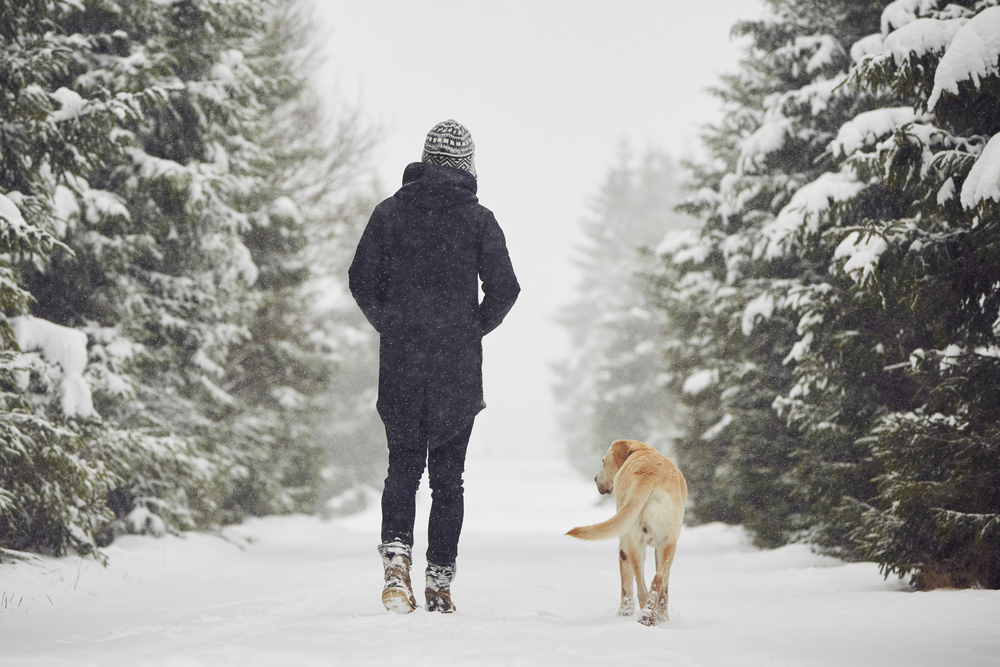£0.00 (0) Cart
It’s that time of year once again, where winter is just around the corner and the weather is becoming harder to predict. Soon we'll be dealing with the cold, rain, snow and ice, wanting to stay indoors and curl up on the sofa with a hot chocolate and a box set.
If you are a dog owner, this plan is not so simple. Planning for the cold, dark and wet season ahead could make all the difference however. We have put together an easy to follow guide to help you and your dog stay safe and well during the winter months.

Don’t be fooled by their furry coat, dogs feel the cold as much as humans. If you see your dog starting to lift their paws or whining more than usual, this could be a sign that they are getting cold and are ready to go back into the warm.
Salt and grit can be everywhere once the ice starts to hit, which can be damaging to a dogs sensitive paws. Wash their feet each time you come back to the house, making sure to rinse between their toes so that ice particles don’t stick into the skin and cause pain. Trim the hair around your dog’s paws before the ice takes hold, this will help to prevent it from clinging to your dog’s feet.
A warm, waterproof coat is essential for the unpredictable British weather. This will be very useful from the early autumn and will take your dog through to the spring, preventing the cold wind and rain from getting to the surface of the skin.
The darker days of winter can be foggy and misty, meaning it is harder for both owner and pet to be seen by motorists and cyclists. It is a good idea for both to wear reflective clothing or accessories, which can be seen at anytime of the day when visibility might be poor. It will also help you and your dog to find each other if you are separated when the mist takes hold. A dog off a lead can be just as scared as you if they don’t know where you are.
It is likely that during the winter your dog won’t be as active, with reduced walks and less motivation to play in the garden. If this is the case, be sure to lower your dog’s daily food intake so that they don’t put on weight that they are unable to burn off. If you find that your dog is out more in the winter and becoming more active, you may need to increase their food a little, to allow for the extra calories that the cold can cause the body to burn.
If you have an open fireplace or a heater that isn’t protected, it will be a good idea to dog-proof them. Otherwise they may be drawn towards the heat without knowing when they are too close and could end up with burns. Treat them to some cosy bedding, as they will appreciate a place to snuggle up on the cold nights and will be warmer if they are not sleeping on cold tiles or floorboards.
Plan your daily walks for when the temperature has risen. Avoid early morning and late evening, especially if the sun is not yet up. If your dog is quite old, be careful of the amount of time you spend walking. As with elderly humans, the dog may be unsteady on their feet and are more susceptible to hypothermia. Avoid walking on frozen ponds during your walk, this increases the risk of slipping as well as a danger of falling through the ice into freezing water.
Sources
https://www.battersea.org.uk/pet-advice/dog-care-advice/winter-dog-care
https://www.bluecross.org.uk/pet-advice/pet-winter-survival-guide